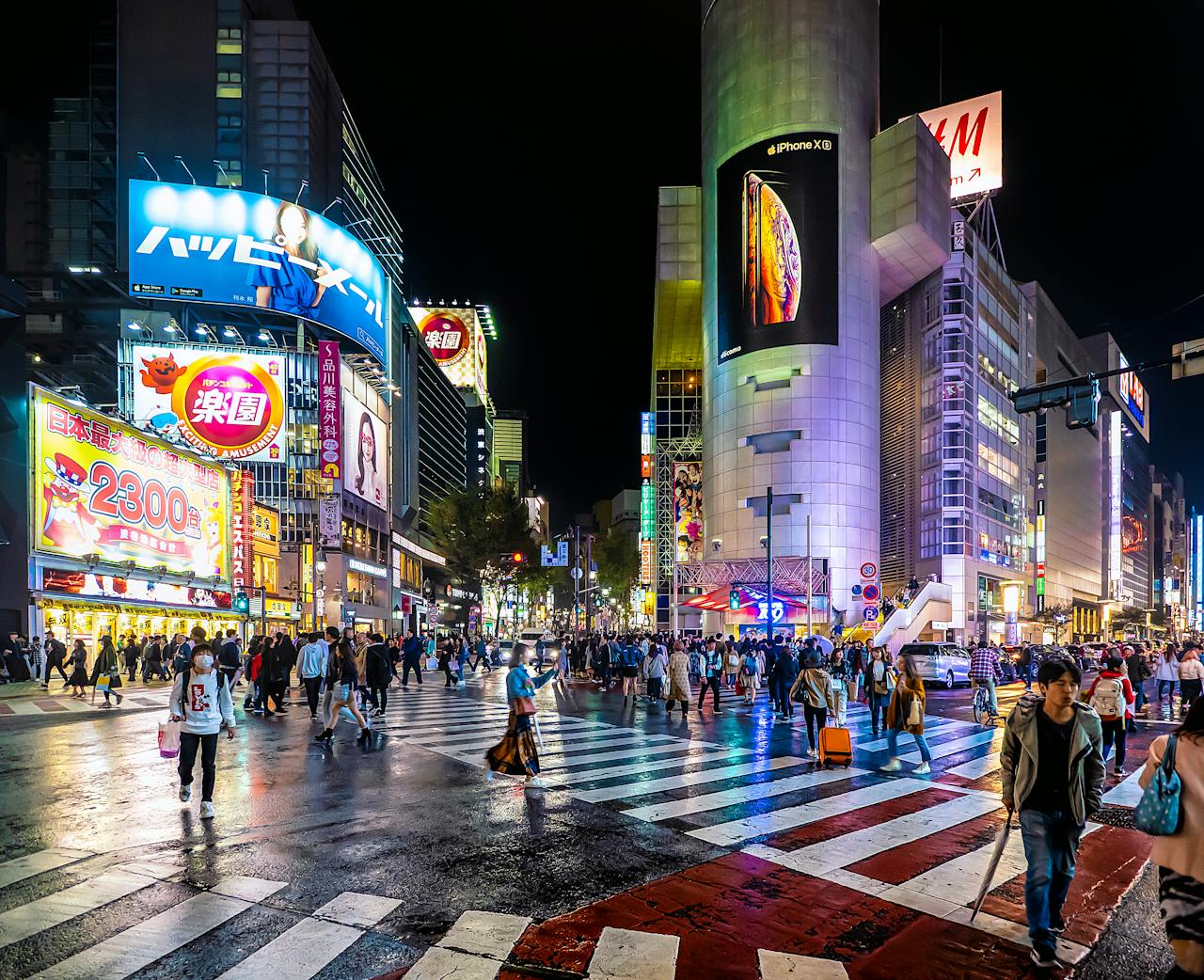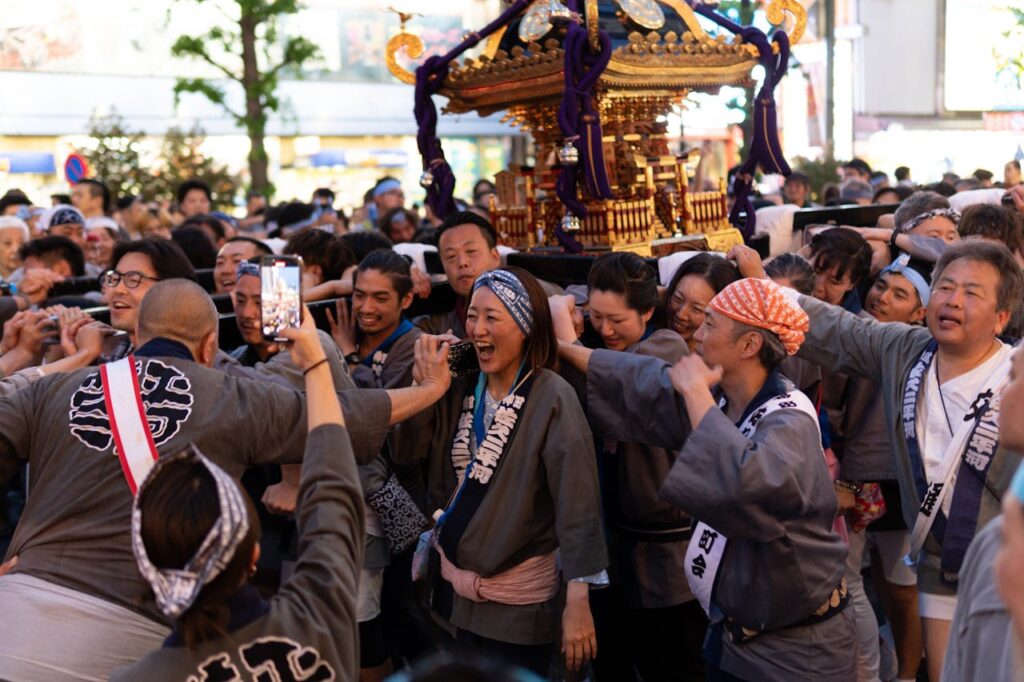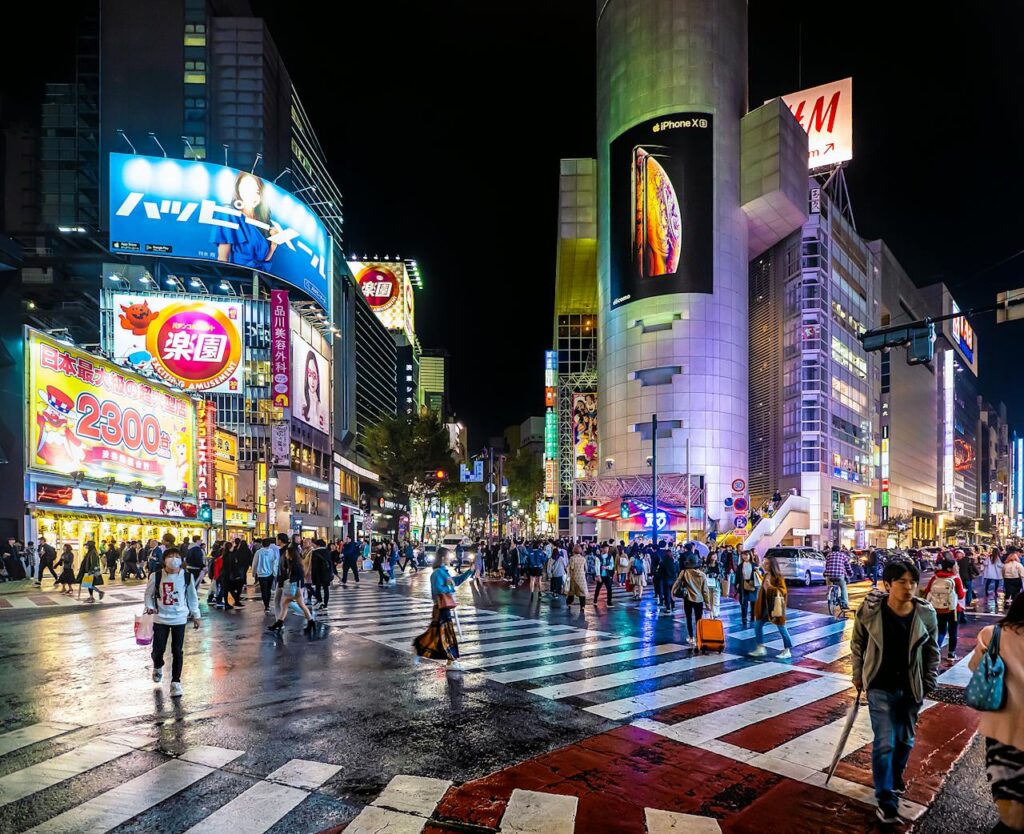In Japan, You Can Pay Companies to Make You Completely Disappear and Start a New Life – It’s Called “Johatsu” and Police Won’t Even Look for You

What if your only escape from shame wasn’t therapy, a vacation, or a new job—but complete erasure? In Japan, it’s not science fiction. It’s reality. And for thousands every year, it’s a lifeline.
Disappearing Without a Trace
What if your life became so heavy that the only way forward felt like erasing yourself completely?
Every year in Japan, nearly 100,000 people quietly slip away from their homes, jobs, and families—vanishing without fanfare, often without explanation. They are known as jouhatsu, a term that translates to “evaporation.” Like mist rising off a river in the early morning, they’re there one moment and gone the next.
One of them is Sugimoto, a 42-year-old businessman who left behind everything—including his wife and children. “I got fed up with human relationships. I took a small suitcase and disappeared,” he told the BBC. What drove him to vanish was not a scandal or crime, but a suffocating expectation to carry on his family’s business in a town where everyone knew his name. His decision wasn’t sudden rage. It was quiet suffocation. “I constantly have a feeling that I’ve done something wrong,” he said. He also added, “I haven’t seen [my children] in a year. I told them I’m on a business trip.”

Sugimoto is not alone. The phenomenon of jouhatsu isn’t an urban myth or a cinematic trope. It’s a documented reality that reflects a deeper tension within society—the tension between who we are and who we’re told to be.
These disappearances have been happening for decades, but came into sharper focus during Japan’s economic collapse in the 1990s. When businesses folded and debts mounted, some saw no way out but to disappear. What began as economic retreat evolved into a more complex, cultural exodus—people leaving not just for survival, but for silence, space, and in some cases, peace.
Journalists Léna Mauger and Stéphane Remael chronicled this phenomenon in The Vanished: The “Evaporated People” of Japan, a five-year investigation into this hidden crisis. They described jouhatsu not as fugitives, but as people “too tired to exist as expected.” In a society that rarely forgives deviation, disappearing becomes the last form of control.
But this is not a uniquely Japanese story. It’s a mirror—held up to every society that praises perfection and punishes vulnerability. It is a story of people who believe vanishing is the only way to be seen. And if we’re brave enough to look closer, it might also be a story about us.
A Culture That Pressures, Then Permits Silence
In Japan, disappearing isn’t simply feasible—it’s socially and legally enabled.
Unlike many nations where a disappearance triggers immediate intervention, Japan’s system—and its cultural norms—often allow adults to walk away from their lives quietly. Police rarely act unless there is evidence of a crime or an accident. In the absence of suspicion, families are often left with few options beyond costly private investigators or waiting in painful limbo.
“Police will not intervene unless there’s another reason – like a crime or an accident … All the family can do is pay a lot for a private detective. Or just wait. That’s all,” Hiroki Nakamori, a sociologist, said. But the legal structure is only one part of the story. The greater weight comes from cultural expectations.
Japan’s social fabric places conformity above individuality. From school to adulthood, people are bound by an unspoken contract: don’t stand out, don’t fail, don’t disrupt the harmony. As journalist Léna Mauger observed in her multi-year investigation into jouhatsu, thousands of Japanese each year vanish not because of crime but because of the stigma tied to debt, job loss, academic failure, or divorce.
One case illustrates the point: an engineer named Norihiro was fired from his job but too ashamed to tell his family. According to Mauger’s reporting, he continued dressing in a suit each morning, leaving home as if going to work, only to spend his days in his car. Eventually, he disappeared entirely.
In a society where group harmony is prized, and where leaving a company is sometimes viewed as disgraceful, vanishing can become more acceptable than openly confronting failure. What might look like running away is, in truth, the outcome of unbearable pressure—pressure that leaves silence as the only perceived refuge.
Night Movers: The Businesses That Help You Erase Yourself
For some, disappearing isn’t a solitary act. It’s a service you can hire.
Across Japan, discreet businesses known as yonige-ya—literally “fly-by-night shops”—offer what’s called “night moving.” Under the cover of darkness, they help clients pack, relocate, and sever ties with their former lives. These companies emerged in the 1990s after Japan’s economic bubble collapsed, when bankruptcies and debts left thousands desperate for escape.
Sho Hatori, who founded one such company, recalls how he realized demand extended beyond financial ruin. Some came to him fleeing abusive relationships. Others sought relief from academic failure, workplace bullying, or broken marriages. “What we did was support people to start a second life,” he told the BBC.
One of these services is run by a woman known only as Saita. Once a jouhatsu herself, she disappeared 17 years ago after enduring domestic violence. Now, she uses her experience to help others. “There are people who run away from serious domestic violence or ego and self-interest. I don’t judge. I never say, ‘Your case is not serious enough.’ Everybody has individual struggles,” she explained.
The process is meticulous. Clients pay substantial sums for secrecy. Moving companies often provide temporary housing in anonymous apartments, paid in cash, far from where family or creditors might look. In sprawling megacities like Tokyo, where millions blend into the crowd, the disappeared can dissolve into anonymity almost instantly.
Every year, hundreds make use of these services —a testament to how normalized, though still taboo, the practice has become. While to outsiders it may sound like an underground world of fugitives, the reality is more human. These businesses are less about escape from the law and more about escape from expectations.
Here, disappearance is not rebellion. It is survival, outsourced to professionals who ask no questions—except perhaps, where do you want to begin again?
The Aftermath: The Pain of Those Who Leave and Those Left Behind
Disappearance can feel like relief to the person who leaves. It often becomes lingering uncertainty to everyone else.
Families in limbo
For relatives, absence becomes a daily question with no clear end. Scholars call this ambiguous loss, a form of grief that lacks closure and can persist for years. Clinical research describes how this uncertainty complicates coping and keeps families suspended between hope and despair. Field work in Japan after national tragedies has documented the same pattern among families who still wait for answers.
Life at the margins for the vanished
Many who disappear do not step into comfort. Reporting has shown that people on society’s edges are funneled into low paid, hazardous, and informal work, including Fukushima decontamination jobs where recruiters targeted the most vulnerable. This is not everyone’s path, yet it illustrates how anonymity can come with exploitation and risk.
When absence hardens into paperwork
Japanese law allows a formal declaration of disappearance after seven years, which can dissolve a marriage and open inheritance. On paper, the person becomes administratively absent. In reality, the emotional story often remains unresolved for everyone involved.
How to Cope When You Feel Like Disappearing
If you’ve ever wanted to vanish, know this: you are not weak. You are carrying more than your share. The urge to disappear is a signal, not a solution. Here are steps that can help you face the weight without erasing yourself.

- Pause before you run
When the walls close in, the instinct is escape. Before you act, give yourself one hour. Go outside, breathe, write, scream into a pillow — anything that grounds you in the present moment. Often, it’s not life you want to leave, but the feeling you’re in right now. - Speak the unspoken
Shame thrives in silence. Tell one person what you’re carrying — a friend, a sibling, even a stranger on a helpline. When words leave your chest, the burden shifts. You don’t have to tell the whole story, just enough to remind yourself that you exist outside of your pain. - Redefine escape
Disappearing forever is not the only way to start over. Take a smaller disappearance: log off for a day, go for a solo walk, book a short trip, or step back from roles that are draining you. A temporary retreat can give the clarity you’re searching for without cutting every tie. - Break the problem into pieces
Debt, relationships, career failure — these feel impossible when viewed as one giant wall. Write down the smallest first step: call one advisor, update one résumé, speak one truth. Healing is rarely an all-at-once event; it’s a series of small revolutions. - Anchor yourself in the future you haven’t met yet
When despair tells you that nothing will change, remember: the version of you who laughs freely, who loves again, who feels light — they’re already waiting. Sometimes survival is simply holding on long enough to meet them.
You don’t need to vanish to begin again. What you need is a pause, a voice to hear you, and one small step toward the life you still deserve.
The Silence Between Us
Disappearance is never just about the person who leaves. It’s also about the world they leave behind — a world that didn’t feel safe enough to hold them.
When someone evaporates, it reveals more than personal struggle. It exposes the weight of expectation, the cost of silence, the cracks in the systems around us.

A boy left by his father put it simply: “What Dad decided is Dad’s life, and I can’t change it.” His words remind us that absence shapes the living as much as it does the vanished. So the question becomes: who around you is carrying more than they can say? Who hides behind a smile while quietly planning their escape?
We can’t erase every burden. But we can notice. We can ask. We can choose connection over silence. Because sometimes the loudest cries are not heard. They’re the footsteps that disappear in the night.
Loading...

